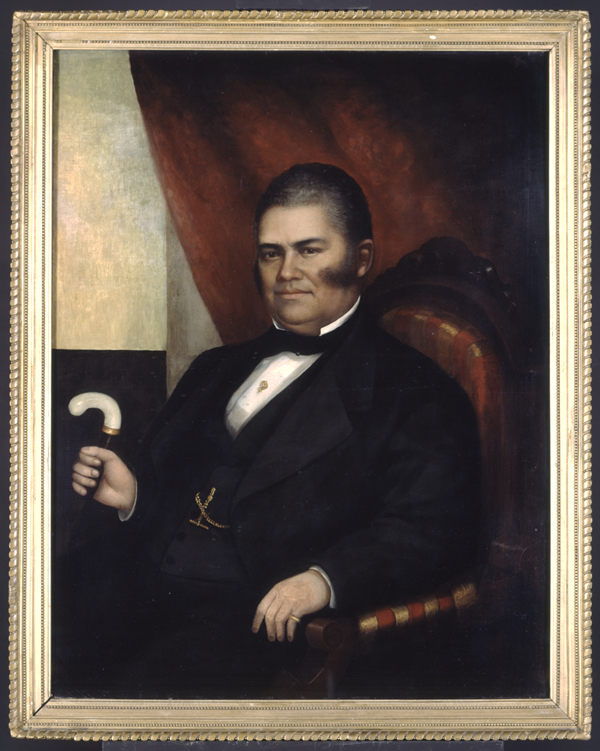 John Jones was a free man born in North Carolina around 1816 to an African American mother and a white father. Throughout his life, he lived in a variety of cities and towns including Memphis, Tennessee and Alton, Illinois, where he would marry his wife, Mary Jane Richardson, in 1841. After his career began to take off, Jones and his wife moved to and settled down in Chicago, Illinois where he worked as a tailor and opened his own shop. As Jones was a savvy businessman, he was able to attain a small fortune from his work.
John Jones was a free man born in North Carolina around 1816 to an African American mother and a white father. Throughout his life, he lived in a variety of cities and towns including Memphis, Tennessee and Alton, Illinois, where he would marry his wife, Mary Jane Richardson, in 1841. After his career began to take off, Jones and his wife moved to and settled down in Chicago, Illinois where he worked as a tailor and opened his own shop. As Jones was a savvy businessman, he was able to attain a small fortune from his work.
Political Activism
Jones was a self-educated man who used his education to go after the Illinois black laws, a set of discriminatory laws that made living in the state as an African American incredibly difficult. While many, if not all, of the norther United States had black laws at the time, those drafted by Illinois legislators were the most discriminatory. To fight the continuation of these laws, Jones published a piece in 1864 about the laws entitled
The Black Laws and a Few Reasons Why They Should Be Repealed. After many years of fighting against them, finally in 1865, Illinois got rid of a majority of those laws after becoming the first state in the Union to ratify the 13th amendment to their constitution. The laws would be repealed the same week in February in which the amendment was ratified and is remembered as "One Amazing Week." This victory for Jones and many other activists like him marked a change in Illinois politics and one for all African Americans throughout Illinois. This activism put Jones in touch with many other important activists and abolitionists of the time such as John Brown and Frederick Douglas.
Underground Railroad Work
While Jones is mainly remembered for his political activism and his status as an African American businessman, he also worked on the Illinois Underground Railroad. In Chicago, Jones used his home and tailor shop as stopping points on the road to freedom, as the city was the last stop on many of the Illinois routes. Jones work was vital to many freedom seekers who were so close to attaining their freedom.
Later Life
Alongside his work on the Underground Railroad, Jones was also elected to the Cook County Board of Commissioners in 1871 where he would serve for two terms and helped fight to end segregated schooling in Illinois. After years of activism for African Americans in Illinois, Jones passed aay in 1879. he is buried alongside his wife and family in Graceland Cemetery in Chicago, Illinois which is also the final resting place for twenty-seven other Underground Railroad conductors and helpers.